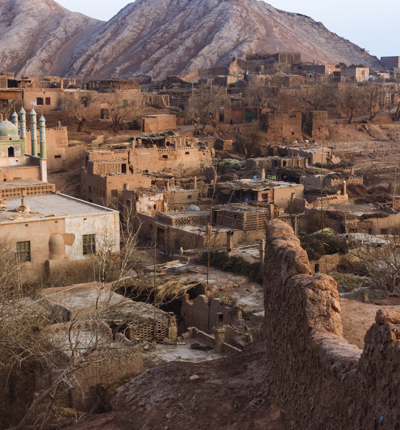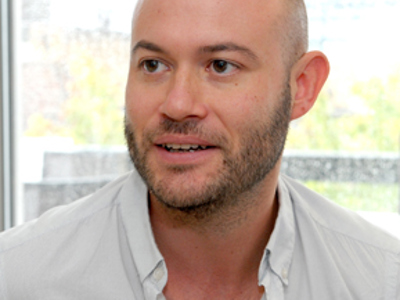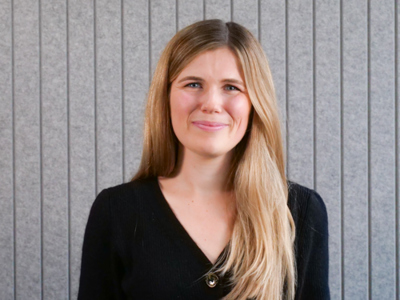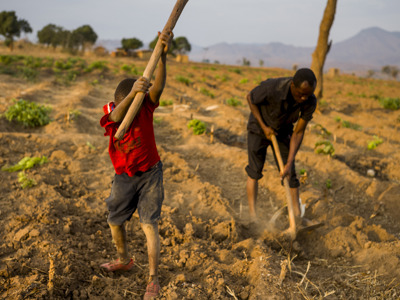
Forced Labour in the Uyghur Region: activists, campaigners and lawyers call for urgent action in the European Parliament
Oliver Holland and Claire Powell from the International Department report on the work of the Coalition to End Uyghur Forced Labour and their attendance at the recent public panel event at the European Parliament in Brussels.
Posted on 01 June 2022
Forced labour in global supply chains remains widespread in 2022. The International Labour Organization estimates there are almost 25 million victims worldwide, with reports of up to 152 million children in child labour.
It is a global crisis, with a lack of transparency and limited accountability in supply chains leaving victims at risk, and consumers in the UK, Europe, US and beyond, unwittingly purchasing goods made by exploited workers.
The plight of the Uyghurs in the Xinjiang Uyghur Autonomous Region (XUAR) is one of the most extreme examples of this crisis. As documented recently in a BBC News investigation, the evidence that China is orchestrating a campaign of cultural genocide against the Uyghur people is extremely strong, including forced relocation to “re-education camps”, factories and farms to work in appalling conditions as well as a shoot to kill policy. Uyghur forced labour has been linked with cotton, technology and food production, and despite calls to withdraw from the region, many companies continue to expose themselves, and consumers, to supporting China’s genocide against the Uyghurs.
The Coalition to End Forced Labour in the Uyghur Region (the Coalition) is leading the campaign on behalf of the Uyghur people. The Coalition is made up of civil society organisations and trade unions who target governments, companies and stakeholders to eradicate Uyghur forced labour, and to take urgent action on a global scale. At a public panel event in Brussels this month, the Coalition raised these issues in the European Parliament, calling for immediate legislative action, increased corporate due diligence and global recognition of the plight of the Uyghur community.
The Uyghur Region: a human rights crisis
Reports of the targeted abuse and exploitation of the Uyghurs and other Turkic and Muslim-majority peoples by the Chinese state have been widespread since 2018. There are an estimated 12 million Uyghurs living in XUAR, whose language, culture and way of life are under attack from the Chinese authorities who claim their actions are required as part of a “war on terrorism”.
China has been accused of systemic persecution and ill-treatment with reports of forced sterilisation, widespread detention, extensive surveillance and operating a shoot to kill policy. China denies any wrongdoing, with state media extolling the “vocational training centres” and “poverty alleviation programs” which UN Human Rights experts have likened to detention centres, with inhumane working conditions and restrictions on basic human rights.
All the while, exports from China remain vast. An estimated 20% of the world’s cotton is produced in China and 85% of that is from the Uyghur Region. Other goods linked with the region include solar panels, agriculture, bricks, toys and beauty products.
China’s refusal to acknowledge any human right concerns, coupled with a near-total ban on international visits to the Xinjiang region has meant progress to address these issues has been slow. Fearful of the political fallout, and the potential loss of the lucrative Chinese market, corporations and governments have been accused of inaction, with horrendous consequences for the Uyghur community and ongoing exposure to forced labour for consumers.
Progress to date: legislation, public campaigns and legal developments
However, some progress has been made, most notably the passage of the Uyghur Forced Labour Prevention Act in the USA in 2021, banning the import of goods from the region. In the UK, an amendment has been put forward to the Health and Social Care Bill to ban the NHS from procuring goods and service tainted by human trafficking or slavery after reports of PPE equipment being manufactured in XUAR and plans to introduce a Modern Slavery Bill have been announced. In the EU, the European Commission has set out a strategy to tackle forced labour, including a ban on forced labour products akin to the legislation passed in the US.
The Coalition and other campaigners have also succeeded in keeping these issues in the public eye, including during global events, such as the Winter Olympics in Beijing, where organisers were called to answer concerns that athletes could be wearing kit manufactured in the “slave trade” region of Xinjiang.
The need for a global strategy is clear, with legislation, campaigning and litigation all playing a role. There have long been calls for companies to be required to undertake more enhanced due diligence in their supply chains and better mechanisms in place for victims where corporations fail to act. Leigh Day have pioneered cases of parent company liability, including the UK 2019 Supreme Court decision in Vedanta v Lungowe which expanded the duty of care owed by corporations, to those harmed by their operations, principles which were further affirmed in the 2021 case of Okpabi v Shell.
The plight of the Uyghurs shows the pressing need for a joined-up approach to tackling forced labour, and the Coalition continues to push for action from governments, corporations and consumers.
What next? The need for a global strategy
The panel discussion highlighted the work that is still required, and that the existing legislation is not enough. In particular, import bans in one country, such as the US, highlights the need for other countries to follow suit or risk becoming “dumping grounds” for goods made with forced labour.
Strategic litigation will also play a role where corporations fail to act, and cooperation between campaign groups, law firms and NGOs is clear.
Read more about the work of the Coalition: here.
Read about Leigh Day’s corporate accountability work: here.

Oliver Holland
Oliver is a partner in Leigh Day's international and environment teams. Oliver's practice covers environmental harm, human rights, modern slavery & consumer litigation, including expertise in conflict of law issues & cross-border disputes.



